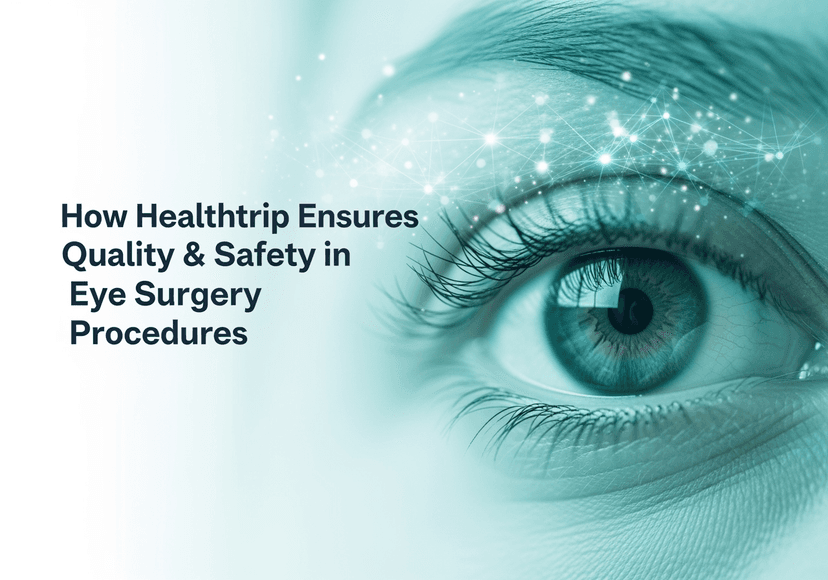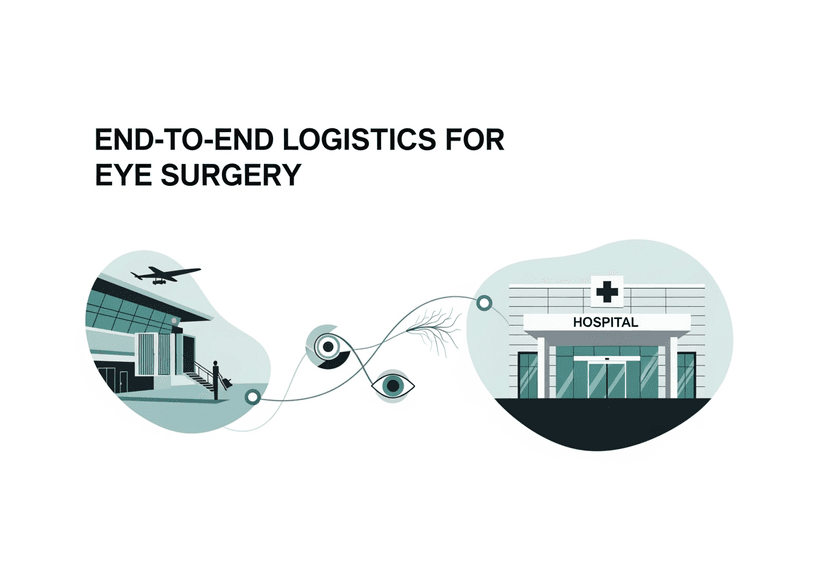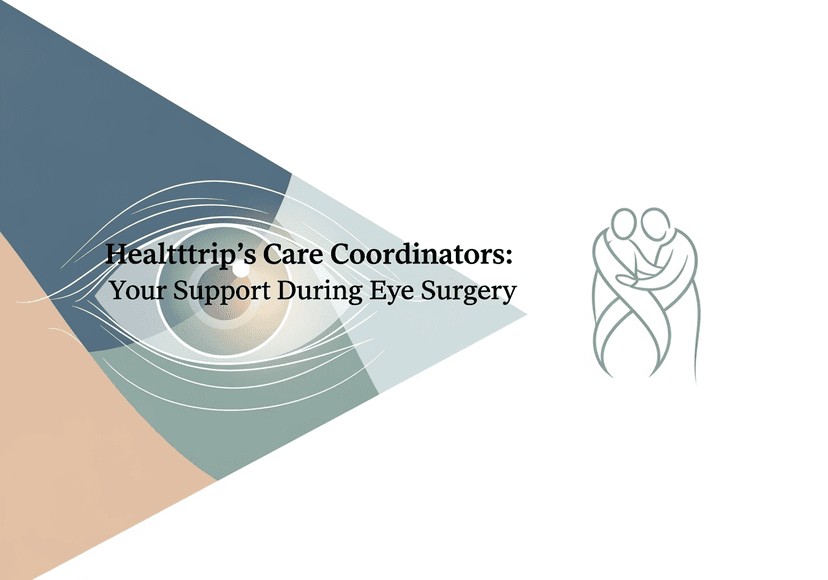
Latest Techniques Used for Cardiac Surgery in India via Healthtrip
13 Oct, 2025
 Healthtrip
Healthtrip- Minimally Invasive Cardiac Surgery (MICS): A Revolution in Heart Care
- Robotic-Assisted Cardiac Surgery: Precision and Enhanced Recovery
- Transcatheter Valve Replacement (TAVR/TMVR): A Non-Surgical Option
- Hybrid Cardiac Surgery: Combining Techniques for Optimal Outcomes
- Advanced Imaging Techniques in Cardiac Surgery
- Cardiac Rehabilitation: Recovery and Improved Quality of Life Post-Surgery
- Conclusion
Minimally Invasive Cardiac Surgery (MICS)
Minimally Invasive Cardiac Surgery (MICS) represents a paradigm shift in how heart procedures are performed, offering a less traumatic alternative to traditional open-heart surgery. Instead of a large incision down the chest, MICS involves smaller incisions, often just a few centimeters in length. This approach leads to several advantages, including reduced pain, shorter hospital stays, quicker recovery times, and less scarring. Imagine returning to your normal life in weeks, rather than months! Surgeons at hospitals like Fortis Memorial Research Institute, Gurgaon, are increasingly adopting MICS techniques for procedures such as coronary artery bypass grafting (CABG), valve repair, and atrial septal defect (ASD) closure. The use of specialized instruments and video-assisted technology allows surgeons to visualize and operate on the heart with precision, minimizing trauma to surrounding tissues. For patients, this translates to a more comfortable experience and a faster return to their daily activities. Healthtrip understands the anxiety associated with surgery, and we strive to connect you with the best MICS specialists who prioritize your comfort and well-being throughout the entire process.
Most popular procedures in India
Robotic-Assisted Cardiac Surgery
Taking minimally invasive surgery a step further, robotic-assisted cardiac surgery utilizes advanced robotic systems to enhance a surgeon's precision, dexterity, and control. The da Vinci Surgical System, for example, allows surgeons to perform complex procedures through even smaller incisions with greater accuracy. This translates to enhanced outcomes for patients, like those treated by doctors at Max Healthcare Saket. Benefits of robotic surgery include reduced blood loss, decreased risk of infection, and improved cosmetic results. The surgeon controls the robotic arms from a console, providing a three-dimensional, magnified view of the surgical site. Robotic-assisted surgery is used for a variety of cardiac procedures, including mitral valve repair, coronary artery bypass grafting, and atrial fibrillation ablation. While the technology is impressive, it's the skilled surgeons who truly make the difference. Healthtrip works with hospitals known for their expertise in robotic cardiac surgery, ensuring that you receive the highest level of care from experienced professionals. We understand that the idea of robotic surgery can be a bit intimidating, but rest assured, our partner hospitals prioritize patient education and will thoroughly explain the procedure and address any concerns you may have.
Wellness Treatments
Give yourself the time to relax
Lowest Prices Guaranteed!

Lowest Prices Guaranteed!
Transcatheter Valve Procedures
For patients who are not ideal candidates for traditional open-heart surgery, transcatheter valve procedures offer a less invasive alternative for treating valvular heart disease. Transcatheter Aortic Valve Implantation (TAVI) is a prime example of this technique, where a new aortic valve is inserted through a catheter, typically inserted through an artery in the leg or arm. The new valve is then guided to the heart and deployed within the existing, diseased valve. This avoids the need for a large chest incision and cardiopulmonary bypass, reducing the risks and recovery time associated with open-heart surgery. Hospitals like Fortis Hospital, Noida, offer these advanced Transcatheter valve procedures. Transcatheter mitral valve repair is another emerging technique that shows promise for treating mitral regurgitation without surgery. These procedures are particularly beneficial for elderly or high-risk patients who may not be able to tolerate traditional surgery. Healthtrip recognizes the importance of providing access to these innovative, life-saving treatments. We connect patients with leading cardiologists and cardiac surgeons who are skilled in performing transcatheter valve procedures, ensuring that you receive the most appropriate and effective treatment for your condition. We're here to guide you through every step of the process, from initial consultation to post-operative care.
Heart Transplantation and Artificial Hearts
For patients with end-stage heart failure, heart transplantation remains the gold standard treatment. However, the availability of donor hearts is a significant limitation. India has made significant strides in heart transplantation, with specialized centers offering comprehensive transplant programs. Hospitals such as those in the Fortis Healthcare network are known for their expertise in this area. In cases where a donor heart is not immediately available, or if a patient is not eligible for transplantation, mechanical circulatory support devices, such as ventricular assist devices (VADs), can be used as a bridge to transplant or as destination therapy. VADs are implantable pumps that assist the heart in pumping blood, improving the patient's quality of life and prolonging survival. Research is also ongoing in the development of total artificial hearts, which could potentially replace the need for donor hearts altogether. Healthtrip understands the emotional and logistical challenges associated with heart transplantation. We provide comprehensive support to patients and their families, helping them navigate the transplant process, from finding a suitable match to managing post-transplant care. We work closely with transplant centers to ensure that our patients receive the best possible care throughout their journey.
Minimally Invasive Cardiac Surgery (MICS): A Revolution in Heart Care
Imagine a world where heart surgery doesn't necessarily mean a long recovery and a large scar. Minimally Invasive Cardiac Surgery (MICS) is making this a reality for many, offering a less traumatic approach to treating heart conditions. Instead of the traditional open-heart surgery, which involves cutting through the breastbone, MICS utilizes small incisions, often just a few inches long. This allows surgeons to access the heart through the ribs, minimizing damage to surrounding tissues and bones. The benefits are numerous: less pain, shorter hospital stays, quicker recovery times, smaller scars, and reduced risk of complications. Healthtrip understands that the thought of heart surgery can be daunting, and MICS offers a ray of hope for those seeking a less invasive option. At Healthtrip, we connect you with world-class hospitals and surgeons specializing in MICS. Consider hospitals like Memorial Sisli Hospital or Memorial Bahçelievler Hospital, offering advanced MICS procedures. These hospitals employ skilled surgeons and state-of-the-art technology to ensure the best possible outcomes. Also, facilities like Fortis Memorial Research Institute, Gurgaon https://www.healthtrip.com/hospital/fortis-memorial-research-institute showcase advanced cardiac treatments.
Benefits of MICS
MICS offers a significant shift in the patient experience. Because the incisions are much smaller, there's less trauma to the body, which translates to less pain after surgery. Patients often require less pain medication and can return to their normal activities sooner. Hospital stays are typically shorter, allowing people to get back to their lives more quickly. The cosmetic benefits are also a plus – smaller scars are less noticeable and can boost self-esteem. But perhaps the most important advantage is the reduced risk of complications. Smaller incisions mean less chance of infection and a lower risk of bleeding. Healthtrip is committed to providing you with the information you need to make informed decisions about your health. We can help you explore MICS as a potential treatment option and connect you with experienced surgeons who can assess your individual needs. The Saudi German Hospital Cairo, Egypt https://www.healthtrip.com/hospital/saudi-german-hospital-cairo is another facility where you can consider going for MICS. Whether you're dealing with valve issues, coronary artery disease, or other heart conditions, MICS could be the key to a faster, less painful recovery.
Robotic-Assisted Cardiac Surgery: Precision and Enhanced Recovery
Step into the realm of futuristic heart surgery with robotic-assisted cardiac surgery. This innovative approach takes minimally invasive techniques to the next level by incorporating the precision and dexterity of robotics. Imagine a surgeon controlling tiny robotic arms with specialized instruments through small incisions, allowing for unparalleled visualization and maneuverability within the chest cavity. Robotic surgery enhances a surgeon's capabilities, offering improved accuracy, greater control, and better access to hard-to-reach areas of the heart. This can lead to even smaller incisions, less tissue damage, and potentially faster recovery times compared to traditional MICS. Think of it as giving surgeons superhuman abilities to perform delicate procedures with exceptional precision. Healthtrip recognizes the growing importance of robotic surgery in cardiac care, and we're here to help you navigate the landscape of this cutting-edge technology. Hospitals like Fortis Hospital, Noida https://www.healthtrip.com/hospital/fortis-hospital-noida are at the forefront of robotic surgery, offering patients access to the latest advancements in cardiac care. Robotic-assisted cardiac surgery brings a new set of benefits for the patients.
The Da Vinci Surgical System
The Da Vinci Surgical System is a popular robotic platform used in cardiac surgery. It consists of a console where the surgeon sits, viewing a high-definition, 3D magnified image of the surgical site. The surgeon's hand movements are translated into precise movements of the robotic arms, which hold specialized surgical instruments. This allows for intricate procedures to be performed with greater accuracy than is possible with traditional techniques. For example, robotic-assisted mitral valve repair allows surgeons to meticulously reconstruct the damaged valve, restoring its function with incredible precision. This can lead to improved long-term outcomes and a reduced risk of valve replacement. Healthtrip is dedicated to connecting you with hospitals and surgeons who are experienced in using the Da Vinci Surgical System. We understand that choosing the right surgeon is crucial for a successful outcome, and we can help you find a qualified specialist who can assess your suitability for robotic-assisted cardiac surgery. Consider that facilities such as Vejthani Hospital https://www.healthtrip.com/hospital/vejthani-hospital offer these advanced treatments, making international healthcare a real advantage for many patients. Robotic surgery is also a great option for other procedures, apart from Mitral Valve Repair.
Transcatheter Valve Replacement (TAVR/TMVR): A Non-Surgical Option
For patients with heart valve disease, Transcatheter Valve Replacement (TAVR) and Transcatheter Mitral Valve Replacement (TMVR) offer a groundbreaking alternative to traditional open-heart surgery. These minimally invasive procedures allow doctors to replace damaged heart valves without making a large incision in the chest. Instead, the replacement valve is delivered to the heart through a catheter, a thin tube, usually inserted through an artery in the leg or chest. The new valve is then carefully positioned and expanded, pushing the old valve out of the way. This approach is particularly beneficial for patients who are elderly, have other health conditions, or are not good candidates for open-heart surgery. Healthtrip recognizes that TAVR and TMVR have revolutionized the treatment of heart valve disease, offering a new lease on life for many patients. We can help you understand whether these procedures are right for you and connect you with leading cardiac centers that specialize in transcatheter valve replacement. Facilities like NMC Specialty Hospital, Al Nahda, Dubai https://www.healthtrip.com/hospital/nmc-specialty-hospital-al-nahda offer TAVR, so you can consider that option too.
How TAVR/TMVR Works
During a TAVR or TMVR procedure, a team of cardiac specialists, including cardiologists and cardiac surgeons, works together to ensure the best possible outcome. The procedure is typically performed in a specialized cardiac catheterization lab, where advanced imaging techniques, such as echocardiography and fluoroscopy, are used to guide the placement of the new valve. Patients usually receive conscious sedation or general anesthesia to minimize discomfort. The recovery period after TAVR or TMVR is generally much shorter than after open-heart surgery. Most patients can return home within a few days and resume their normal activities within a few weeks. However, it's important to follow your doctor's instructions carefully and attend all follow-up appointments to ensure a smooth recovery. Healthtrip is committed to providing you with comprehensive support throughout your cardiac journey. We can help you find the right hospital, connect with experienced specialists, and navigate the complexities of medical travel. Consider Bangkok Hospital https://www.healthtrip.com/hospital/bangkok-hospital as a location, so that you can also enjoy the beautiful country.
Also Read:
Hybrid Cardiac Surgery: Combining Techniques for Optimal Outcomes
Hybrid cardiac surgery represents a fascinating evolution in the treatment of heart conditions. Imagine a world where the precision of minimally invasive techniques dances gracefully with the thoroughness of traditional open-heart surgery. That's precisely what hybrid cardiac surgery offers – a tailored approach that selects the best aspects of both worlds to provide patients with optimal outcomes. This innovative approach becomes particularly valuable when dealing with complex cases, where a single technique might fall short of addressing all the patient's needs. Think of it as creating a bespoke suit for your heart, meticulously crafted to fit your individual needs and circumstances. For example, a surgeon might use a minimally invasive approach to repair a valve while simultaneously performing a bypass via a small incision, reducing trauma and recovery time compared to a full open-heart procedure. This integrated strategy allows for a more comprehensive and less invasive solution, leading to quicker healing and a reduced risk of complications, all while ensuring the heart receives the comprehensive care it deserves. At facilities like Fortis Escorts Heart Institute, such advanced procedures demonstrate a commitment to providing cutting-edge, patient-centered care, blending technological innovation with empathetic medical practice.
Benefits of Hybrid Cardiac Surgery
The benefits of hybrid cardiac surgery extend beyond just the surgical technique itself. The reduced invasiveness often translates to less pain, shorter hospital stays, and a quicker return to normal activities. Patients can anticipate getting back to their daily routines, enjoying time with loved ones, and pursuing their passions with renewed vigor. Furthermore, the combination of techniques allows surgeons to address multiple heart issues during a single procedure, minimizing the need for additional surgeries in the future. This comprehensive approach not only improves patient outcomes but also reduces the overall burden on healthcare resources. Hybrid procedures are particularly beneficial for patients who may be considered high-risk for traditional open-heart surgery due to age, pre-existing conditions, or other medical factors. By offering a less invasive alternative, hybrid surgery expands the treatment options available to these patients, providing them with a chance to experience improved heart health and a better quality of life. Healthtrip can assist patients in finding centers of excellence, such as Memorial Bahçelievler Hospital , where skilled surgeons collaborate to deliver the most suitable hybrid cardiac surgery solutions, personalized to individual health requirements, enabling patients to make informed decisions about their health journey.
Advanced Imaging Techniques in Cardiac Surgery
In the intricate world of cardiac surgery, advanced imaging techniques are like having a high-definition roadmap of the heart. These technologies go far beyond traditional X-rays, providing surgeons with detailed, real-time views of the heart's structure and function. Consider the power of 3D echocardiography, which allows doctors to visualize the heart valves in stunning clarity, or the precision of cardiac MRI, which provides detailed images of the heart muscle and blood vessels. These advanced tools are not just about seeing; they're about understanding, planning, and executing surgical procedures with unparalleled accuracy. Before surgery, these images help surgeons meticulously plan their approach, identifying potential challenges and tailoring the procedure to the specific needs of the patient. During surgery, real-time imaging guides the surgeon's hand, ensuring precise placement of grafts, valves, and other devices. Afterwards, imaging is essential for monitoring the success of the procedure and detecting any potential complications early on. Facilities like Vejthani Hospital employ these advanced imaging modalities to enhance diagnostic accuracy and surgical planning, ensuring patients receive the most effective and personalized treatment strategies. Healthtrip streamlines the process of finding these cutting-edge diagnostic facilities, providing patients with access to hospitals equipped with the latest imaging technology, ultimately leading to more informed decisions and improved surgical outcomes.
Examples of Advanced Imaging in Practice
Let's dive into some specific examples of how advanced imaging is revolutionizing cardiac surgery. Transesophageal echocardiography (TEE), performed during surgery, gives surgeons a live, detailed view of the heart from inside the esophagus, allowing them to assess valve function and detect any leaks or abnormalities. Cardiac CT angiography provides a non-invasive way to visualize the coronary arteries, identifying blockages and helping surgeons plan bypass grafts with pinpoint accuracy. Intravascular ultrasound (IVUS) uses sound waves to create images from inside the blood vessels, providing valuable information about the composition and extent of plaque buildup. These technologies are not just about pretty pictures; they are about empowering surgeons with the information they need to make critical decisions in real time. For instance, at Fortis Memorial Research Institute, Gurgaon, surgeons use advanced imaging to meticulously plan and execute complex bypass surgeries, minimizing the risk of complications and maximizing the long-term benefits for their patients. Healthtrip understand the importance of these technologies and connect patients with hospitals that prioritize innovation and invest in the latest imaging equipment, like Bangkok Hospital , ensuring that patients receive the best possible care, guided by the most accurate and detailed information available.
Also Read:
Cardiac Rehabilitation: Recovery and Improved Quality of Life Post-Surgery
Cardiac rehabilitation is more than just a post-operative formality; it's a personalized roadmap to reclaiming your life and building a stronger, healthier heart. Think of it as a guided journey that combines exercise, education, and emotional support to help you recover from heart surgery and reduce your risk of future heart problems. It's a holistic approach that addresses not just the physical aspects of recovery but also the emotional and psychological challenges that often accompany heart conditions. A typical cardiac rehab program involves supervised exercise sessions, where you'll work with trained professionals to gradually increase your physical activity level. You'll also receive education on heart-healthy lifestyle choices, including diet, stress management, and smoking cessation. But perhaps most importantly, cardiac rehab provides a supportive environment where you can connect with other patients who understand what you're going through, sharing experiences and encouraging each other along the way. For many, it's like finding a second family, a community of individuals who are all striving towards the same goal: a healthier, happier heart. Centers like Saudi German Hospital Cairo, Egypt incorporate comprehensive cardiac rehabilitation programs into their post-operative care, recognizing the vital role they play in promoting long-term heart health. Healthtrip recognizes that cardiac rehabilitation is essential to recovery, and assist patients in finding programs that best suit their needs.
The Impact of Cardiac Rehabilitation
The impact of cardiac rehabilitation extends far beyond just physical recovery. Studies have shown that cardiac rehab can significantly reduce the risk of future heart attacks, strokes, and other cardiovascular events. It can also lower blood pressure, improve cholesterol levels, and help manage diabetes. But perhaps even more importantly, cardiac rehab can dramatically improve your quality of life. Patients often report feeling less fatigued, more energetic, and more confident in their ability to engage in daily activities. They may also experience reduced anxiety and depression, and a greater sense of well-being. It's about much more than just physical health; it's about reclaiming your life, rediscovering your passions, and enjoying every moment to the fullest. Consider a patient who, after undergoing bypass surgery, felt overwhelmed and uncertain about the future. Through cardiac rehab at Hisar Intercontinental Hospital, Istanbul, they not only regained their physical strength but also learned valuable tools for managing stress and maintaining a heart-healthy lifestyle. They reconnected with their love of gardening, started volunteering at a local community center, and rediscovered the joy in spending time with their grandchildren. Healthtrip is here to assist in connecting patients with such comprehensive programs that offer the guidance and support needed to navigate the recovery journey and embrace a heart-healthy future.
Also Read:
Conclusion
The field of cardiac surgery is constantly evolving, with new technologies and techniques emerging all the time. From minimally invasive procedures to advanced imaging and comprehensive rehabilitation programs, the options available to heart patients today are more diverse and effective than ever before. But navigating this complex landscape can be overwhelming. That's where Healthtrip comes in. We're here to be your trusted guide, providing you with the information, resources, and support you need to make informed decisions about your heart health journey. Whether you're considering surgery, seeking a second opinion, or simply looking for ways to improve your heart health, we're here to help you every step of the way. Our goal is to empower you to take control of your health and live a longer, healthier, and more fulfilling life. So, take that first step, reach out to us, and let us help you navigate the ever-evolving world of cardiac care. Together, we can create a brighter future for your heart. Healthtrip helps patients connect with world-class facilities, such as Mount Elizabeth Hospital dedicated to providing comprehensive and compassionate heart care, ensuring that patients can access the best possible treatment and support.
Related Blogs

How Healthtrip Ensures Quality & Safety in Eye Surgery Procedures
Detailed guide on eye surgery, featuring doctors, hospitals, risks, recovery,

End-to-End Logistics for Eye Surgery with Healthtrip's Support
Detailed guide on eye surgery, featuring doctors, hospitals, risks, recovery,

Healthtrip's Care Coordinators: Your Support During Eye Surgery
Detailed guide on eye surgery, featuring doctors, hospitals, risks, recovery,

Top 5 Indian Hospitals for Eye Surgery
Detailed guide on eye surgery, featuring doctors, hospitals, risks, recovery,

Post-Eye Surgery Diet and Lifestyle Tips
Detailed guide on eye surgery, featuring doctors, hospitals, risks, recovery,

Common Risks in Eye Surgery and How Healthtrip Manages Them
Detailed guide on eye surgery, featuring doctors, hospitals, risks, recovery,










